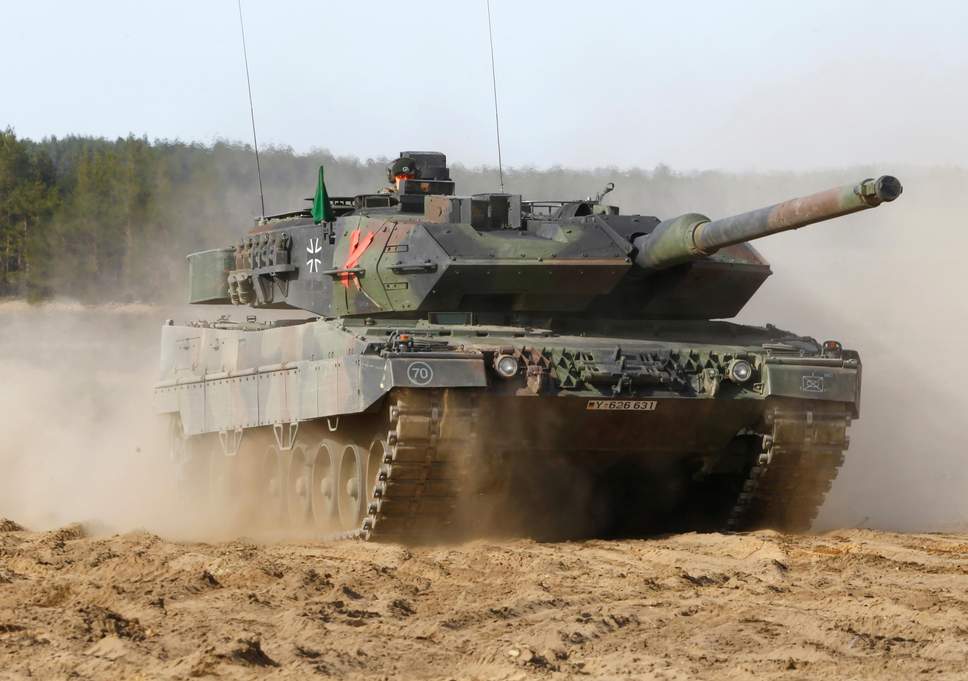Germany Stops Arms Exports to Saudi Arabia
October 22, 2018 | Expert Insights

German Chancellor Angela Merkel says Germany will put arms sales to Saudi Arabia on hold, given the unexplained circumstances of dissident journalist Jamal Khashoggi's death in the Saudi Consulate. The kingdom has threatened to retaliate against any international action, but its biggest bargaining chip, the “oil weapon”, is no longer as powerful as it once was.
Background
Jamal Khashoggi, a Saudi Arabian journalist who was a permanent resident of the United States and a columnist at the Washington Post, was killed at the Saudi Arabian Consulate in Istanbul on 2 October. The Saudi government denied any involvement in Khashoggi’s death for two weeks into the investigation, before finally admitting he was killed by several high ranking officials in the embassy in an alleged fist fight. Saudi’s ties with its strongest ally, the United states, have grown strained over the issue. Many political, financial and business leaders have also spoken out strongly against the country.
Saudi Arabia is the world's top oil producer and exporter, and its economy is petroleum-based. Oil accounts for 90% of the country's exports and nearly 75% government revenues. In 2014, a global fall in oil prices caused the Saudi economy to deteriorate. According to the IMF’s World Economic Outlook report, Saudi’s economic growth will slow in the next five years, while Saudi foreign reserves are declining at an alarming rate (falling to $593 billion at the end of February 2016, down 17% from the previous year’s level).

Analysis
On 20 October, the German Chancellor announced that the country would be halting weapons sales to Saudi Arabia. The chancellor said the Saudi explanation for Khashoggi's death was insufficient, and that those responsible for the killing "must be held accountable.” Merkel said Germany would discuss further "reactions" to the case with its international partners.
In September, Germany approved €416 million ($480 million) worth of military exports to Saudi Arabia for 2018, while limiting sale of weapons used in the Saudi war in Yemen.
Amid calls across the world for arms embargoes against Saudi Arabia, US President Donald Trump has said his country would be "punishing itself" if it halted weapons sales to the country, and that there were “other things we can do that are very, very powerful, very strong and we'll do them.” The US President has repeatedly said he does not want to stop a proposed $110 billion arms sale to the Saudis because too many US jobs depend on it.
President Trump’s assessment might not be entirely accurate. While it is true that the United States would benefit from access to the Saudi arms market, the kingdom is far more heavily dependant on the international community for its weapons supply. This is the opportune time for the rest of the world to make use of its weapons-trade leverage to coerce the kingdom into a more moderate approach to dissidents, in spite of Saudi’s threats that “if [the kingdom] receives any action, it will respond with greater action”.
The threat was sinister to anyone who remembers the embargo of 1973-74, when the “oil weapon” was used to raise international crude prices and create an oil crisis that had numerous short- and long-term effects on global politics and the global economy. As the world’s largest exporter of crude, Saudi Arabia still wields enormous influence over the global market, and the Saudi-owned Al Arabiya news channel warned that the kingdom’s exports could be cut, and “no one should rule out the price jumping to $100, or $200, or even double that figure”.
In reality, such a jump in crude prices would be just as damaging to Saudi Arabia as the rest of the world. Granted, it could push the world into a recession, but that would hurt demand for oil and damage the value of Saudi investments abroad.
The kingdom could see short term benefits from this, in the form of increased revenues from the higher prices, but the long term damage would significantly outweigh these. It would damage their relationship with crucial customers such as China. It would be a stimulant to oil production in other parts of the world, which could damage Saudi Arabia's policy of maintaining its oil market share. This is not a strong bargaining position for the Saudis. If there was ever a time when the international community could influence the kingdom for the better, whether by withholding weapons deals or sanctioning individual leaders, it is now .
Assessment
Our assessment is that this is the ideal time for the West to stand their ground on the Khashoggi issue. We believe that strong diplomacy at this point could potentially prevent future state sponsored assassinations on foreign soil, while sending a strong message against dissidents being silenced.








Comments